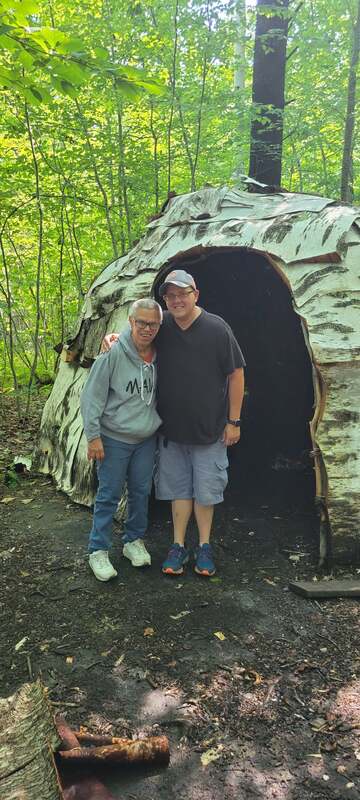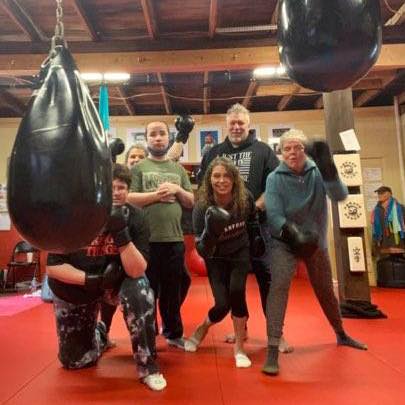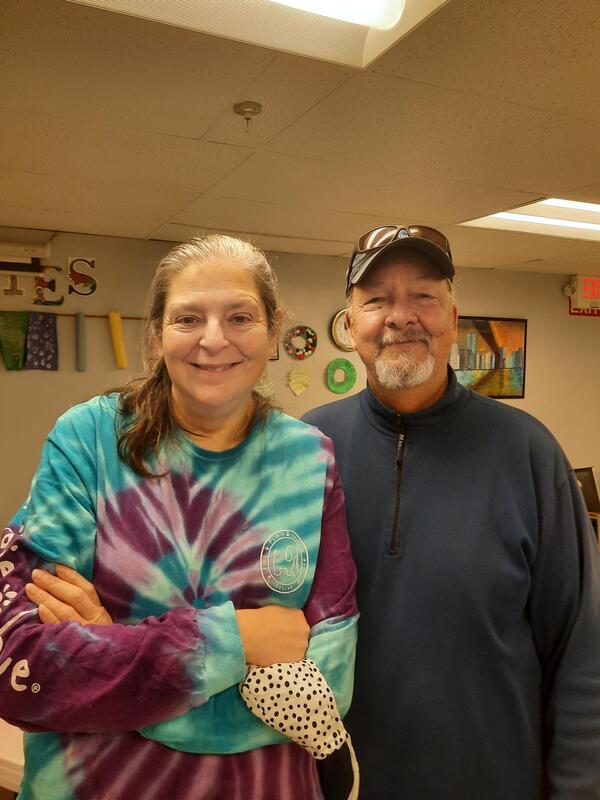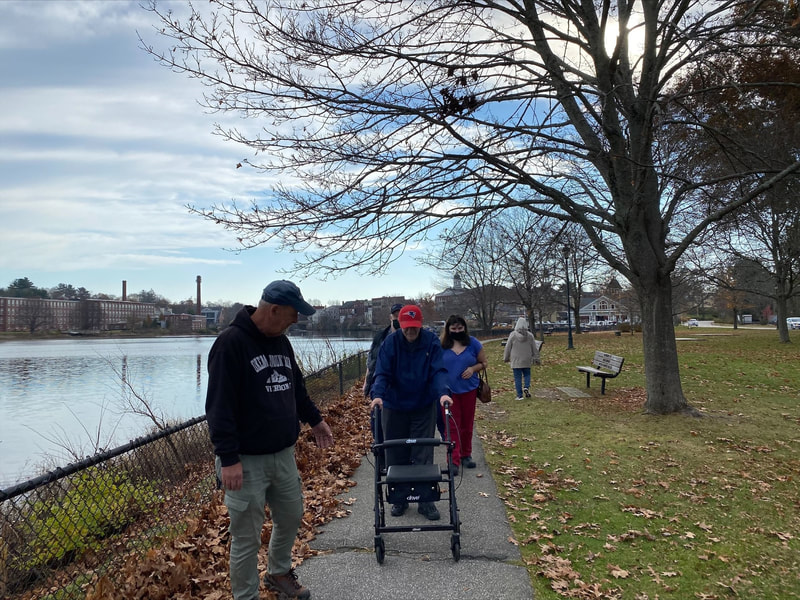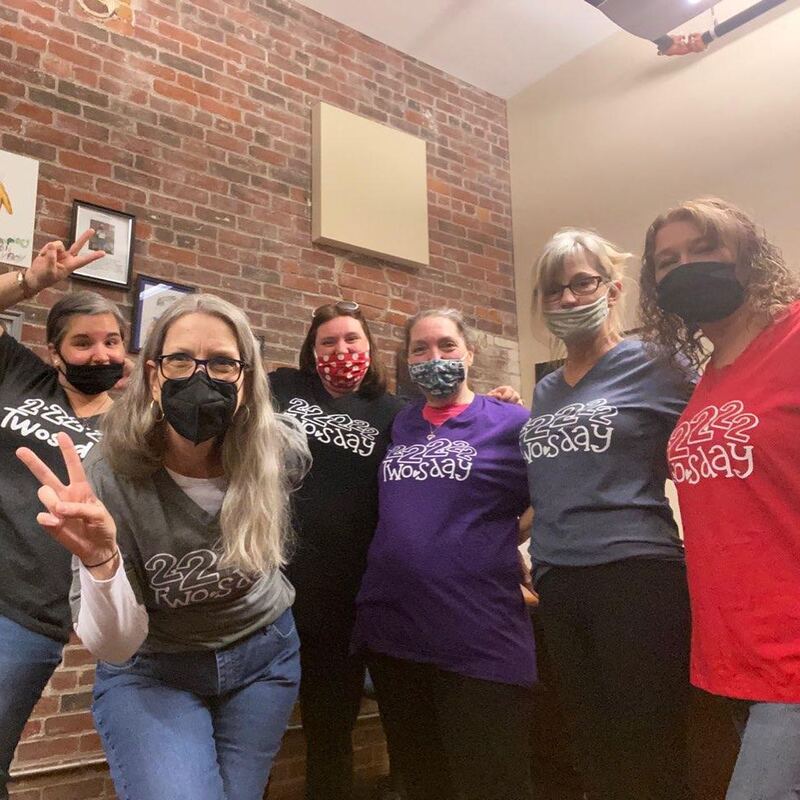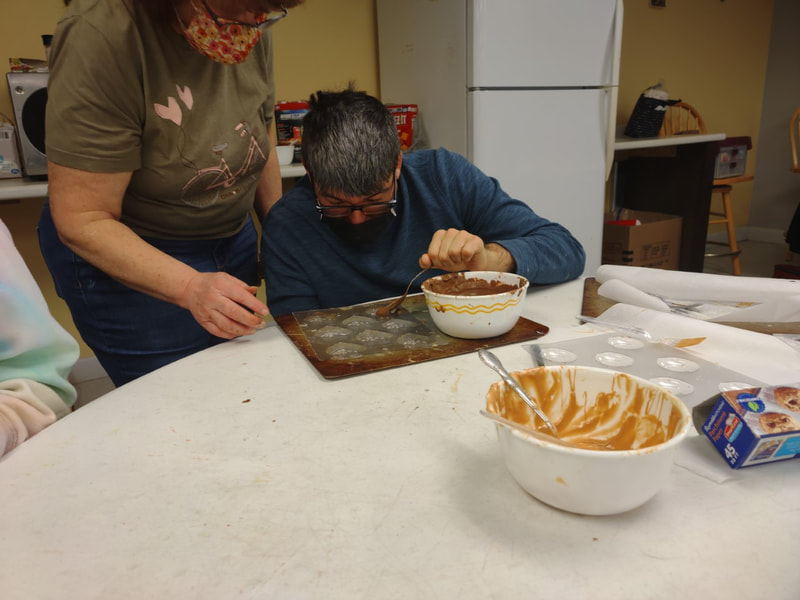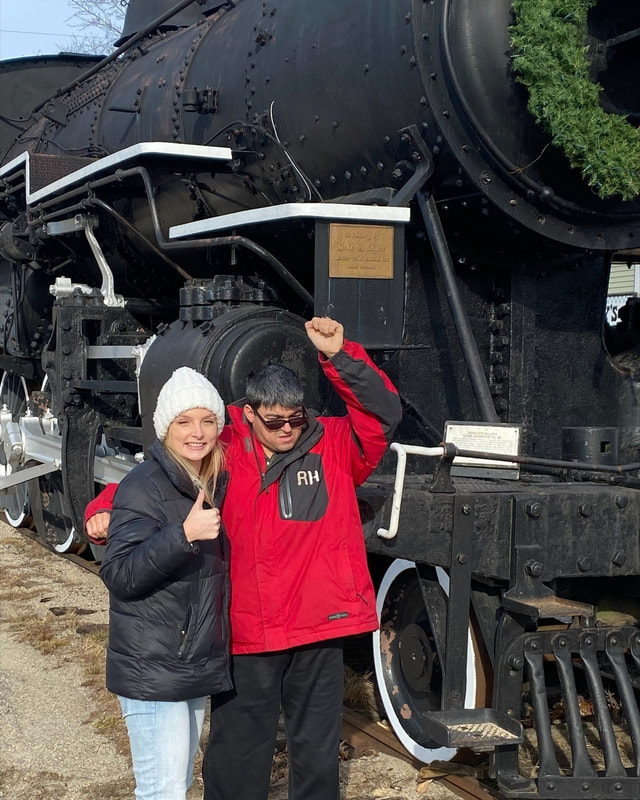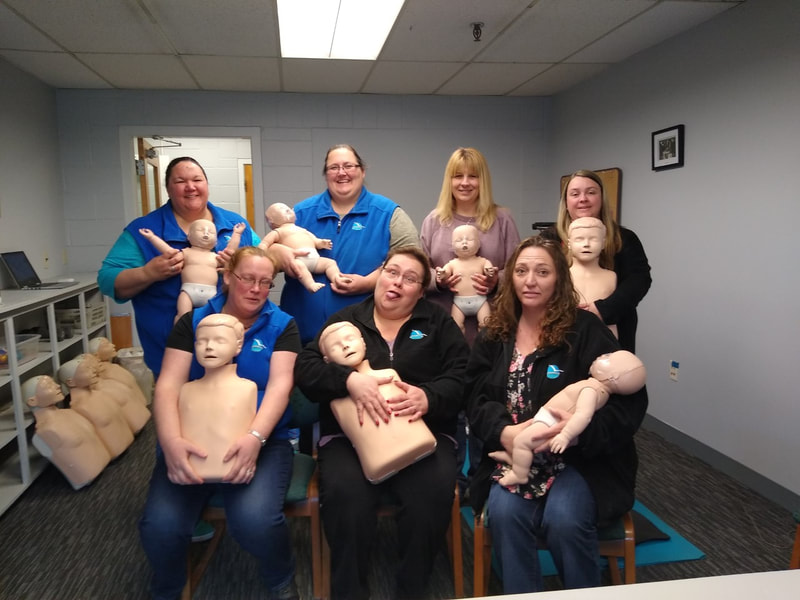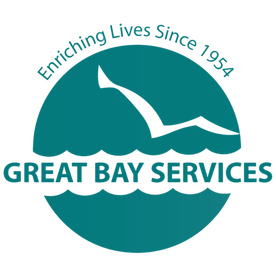|
As readers of this blog likely know, Direct Support Professionals have been making a huge positive impact on my family over four decades. I am a fierce advocate for not only the wellbeing and success of individuals with intellectual & developmental disabilities, like my brother, but by logical (and emotional) extension a fierce advocate for the wellbeing and success of the Direct Support Professionals who make his and his peers’ wellbeing and success possible. As a colleague in the field said to me last year, and as I’ve said to many of you in the intervening months: we are in the business of facilitating self-actualization. I am enormously proud of the work Great Bay Services does – the work of our Direct Support Professional (DSPs) is the work of Great Bay Services. Without DSPs, there is no Great Bay Services. We want to support and lift up our DSPs in every way we can – and over the past 2 years this has included establishing our first Human Resources position, our first Training Coordinator position and our first Training Committee, as well as working to maximize the amount of federal & state funding we are able to put into staff wages, benefits, & bonuses. This is a work in progress, and I’m proud of what we’ve done to date – but in order to make a bigger impact, not only for our own staff but for the DSP workforce nationwide, we need to be involved in advocacy on a national level: nonpartisan advocacy rooted in educating our legislators about what DSPs do, why they’re so important – not only to our loved ones & communities but to society at large, and what legislators can do to help. And this is where the National Alliance for Direct Support Professionals (NADSP) comes in – a membership organization which we also joined within the past two years as a part of our commitment to the DSP profession. From NADSP’s launch of their inaugural Advocacy Symposium: “On March 9-10, 2022 National Alliance for Direct Support Professionals will embark on its first-ever national advocacy event to bring the direct support professional (DSP) perspective to the forefront of Congress and the Administration during a time of unprecedented workforce challenges. Hardships from the pandemic and recent legislation has provided new insights and opportunities for the direct support workforce that supports people with disabilities. The NADSP recognizes the previous absence and critical importance of lifting the voices of DSPs to federal policy-makers, so that public policy can be informed by the people who are on the front-lines of supporting people with disabilities to live, work and thrive in the community. In February 2022, the NADSP [provided] direct support professionals with materials to prepare for legislative meetings. This [led] up to a 1.5-day virtual Symposium that [culminated] with virtual meetings with Congressional leaders and staff to educate and advocate on NADSP’s public policy priorities for 2022.” Together with two DSPs from peer organizations who are also members of NH’s Private Provider Network (PPN), Kristi Reynolds & I had the great pleasure of speaking via Zoom with staff members of New Hampshire’s Congresspeople: Senators Jeanne Shaheen & Maggie Hassan and Representatives Annie Kuster & Chris Pappas. Peers of ours from the Maine Association for Community Service Providers (MACSP), led by OHI Maine CEO of the past 42 years Bonnie-Jean Brooks, held similar meetings with Maine’s Congresspeople. Our meetings went well and were largely met with enthusiastic support – most especially from our Senators. As you will note below, the two pieces of legislation NADSP members were speaking about during this Hill Day were authored or co-sponsored by NH/ME Senators. Almost 400 NADSP member organizations spoke with Senators & Representatives in 42 states across the United States as part of this Hill Day. We all requested the same support from Congress: · #1: Support the Creation of a Standardized Occupational Classification (SOC) Code for DSPs by cosponsoring and urging swift passage of the “Recognizing the Role of Direct Support Professionals Act” ([Hassan authored, Collins co-sponsored] S. 1437 /H.R. 4779). · #2: Support the Direct Care Workforce by Cosponsoring the “Supporting Our Direct Care Workforce and Family Caregivers Act” ([Hassan co-sponsored] S.2344), or “Direct Creation, Advancement and Retention of Employment (CARE) Opportunity Act” (H.R. 2999). · #3: Support an increase of $150 Billion to Support the Expansion and Enhancement of Medicaid Home & Community Based Services. As representatives of the DSP workforce, we all explained to the Congress people he main challenges we currently face: · There is no official Standard Occupational Code or formal recognition of the DSP profession – this is a profession which has a great deal in common with roles such as CNA, HHA, PCA, & LPN but includes additional areas of expertise beyond those roles which are not as of yet recognized – and without recognition as a profession on a federal level, advocacy for better & standardized wages is limited · Lack of clear DSP career pathway – this is something which Great Bay Services’ own Training Committee is working on, but without the funding to connect career steps with increased wages, these pathways are limited in impact · Lots of demands and a high level of skills required but with little training/supports – again, our Training Committee is working on this internally, but federal support is needed · Low wages, long hours, few benefits, little advancement – our addition of a Human Resources Administrator to our staff last year emphasizes our commitment to maximizing benefits, and our Training Committee is doing what it can, but again – federal support is needed · The legislation mentioned above will help us all across the country better tackle these challenges Soon I will be attending NADSP’s feedback session for State Leaders – Bonnie of OHI Maine and I will be in attendance to report back about our experiences and to learn from our peers across the country and NADSP’s leadership about next steps. Great Bay Services is – and I personally am – proud to stand together with peers in Maine and New Hampshire to advocate for our DSP workforce. It is vital that we provide DSPs with the resources & recognition they deserve – not only to ensure we hold onto our wonderful staff members and attract new staff we so urgently need in order to meet demand for supports, not only because DSPs are the heart of everything we do – but because the skill level required, the competencies demonstrated, and the responsibilities with which we entrust them warrants those resources and that recognition.
Written by: Pamela Lowy, Director of Great Bay Services
6 Comments
|
|
Great Bay Services New Hampshire
23 Cataract Avenue, Suite 1 Dover, NH 03820 603-842-5344 |
Great Bay Services Maine
61 Washington Street, Suite 4 Sanford, ME 04073 207-850-1053 Ext. 2001 |
DEI Statement
Great Bay Services was founded at the time that the US civil rights movement was being born and see our history as being tied to the fight for justice and equity. Throughout our 70-year history we have evolved and grown alongside major diversity legislations and societal changes. Disability is the forefront of our organization, but we encourage and celebrate all forms of diversity, fostering equity, inclusion, belonging, and accessibility for all. Creating an inclusive community where everyone has access to equal opportunities and feels they belong is vital to us as an organization – not just within Great Bay Services but in the world around us. We welcome and encourage all to live happy and healthy lives no matter who they are, where they come from, what they look like, their gender identity, sexual orientation, disability, socioeconomic status, or age.
Great Bay Services was founded at the time that the US civil rights movement was being born and see our history as being tied to the fight for justice and equity. Throughout our 70-year history we have evolved and grown alongside major diversity legislations and societal changes. Disability is the forefront of our organization, but we encourage and celebrate all forms of diversity, fostering equity, inclusion, belonging, and accessibility for all. Creating an inclusive community where everyone has access to equal opportunities and feels they belong is vital to us as an organization – not just within Great Bay Services but in the world around us. We welcome and encourage all to live happy and healthy lives no matter who they are, where they come from, what they look like, their gender identity, sexual orientation, disability, socioeconomic status, or age.
|
Links To Show Your Support
Auction & Gala Bowl-a-thon Donate Events NHGives Past Events Sponsorship Tickets & Merchandise |
Great Bay Services is a 501(c)3 Nonprofit.
All donations are directly used to support our services. EIN: 02-0242389
Our New Hampshire program is sponsored in part by the New Hampshire Council on Developmental Disabilities
|

